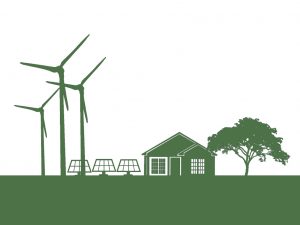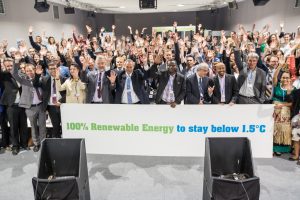News that residents of Mowe, a community in Ogun State and two others – Magboro and Ibafo also on the same axis, have being without grid electricity supply for up to 10 years came pathetic to our ears.
On the strength of the news, we also considered it quite a shame on the part of residents of these communities that they perhaps refused to creatively solve their power issues.
We are quite sure no one is oblivious of the importance of a stable electricity system to the socio-economic safety of any society. So, how come these three communities chose to stay this long unconnected to a power source?
Perhaps typical of the sad aspects of communal conducts in Nigeria, millions of homes and businesses in the communities opted to at best self-generate their electricity, and they have done this for a decade.
If Mowe, Magboro and Ibafo indeed stayed this long without electricity supplied to them from the grid, and then self-generated electricity in motley pockets without realising the profligacies of their choices, then it is time they backtrack and adopt new ways to their power problem.
As recently reported, the Chief Technical Officer of Ibadan Electricity Distribution Company Plc, whose franchise areas of coverage include the communities, Mr. Ade Ayileka promised that the communities will have electricity restored to them around the Christmas period.
Ayileka reportedly stated that the Disco would spend N60 million to link the communities to the existing distribution line from the new Abeokuta 132/33KV substation of the Transmission Company of Nigeria (TCN).
Ayileka’s assurance notwithstanding, the development however does not justify the communities’ long embrace of uneconomical power generation methods.
It equally highlights the truth that the country’s national grid is inadequate and unable to cater for all Nigerians.
The fact that loads of communities live unconnected to the country’s national electricity grid has being on the front burner of her power discuss for a long time now, and this has being the single reason for advocacies for a fresh approach to communities’ electrification.
Through the Electric Power Sector Reform Act (EPSRA) 2005, Nigeria has opened up its power sector for all that is capable to play in. There are also all suites of supplementary regulations which give communities like Mowe, Ibafo and Magboro the opportunity to think deep and creatively to overcome their electricity challenges.
Additionally, renewable energy sources which abounds in all parts of Nigeria are currently gaining a lot of traction in Nigeria, they could and should serve as sustainable options to Mowe and environs.
We believe that Mowe, Magboro and Ibafo have waited too long to be connected to the electricity network by Ibadan Disco, and should now consider a pivot to renewable energy sources.
The economics for such renewable energy switch are healthy and sustainable, there are very good and credible promoters that now dominate and undertake good projects in the country’s renewable energy industry; these we believe gives Mowe, Ibafo and Magboro a good option to either go off-grid or stay with the system that has failed them for 10 years.
They already spend more money self-generating their electricity, which knocks off possible arguments on financing such switch. Besides, there are flexible financing models that can be deployed to keep electricity in Mowe, Ibafo and Magboro running uninterrupted.





